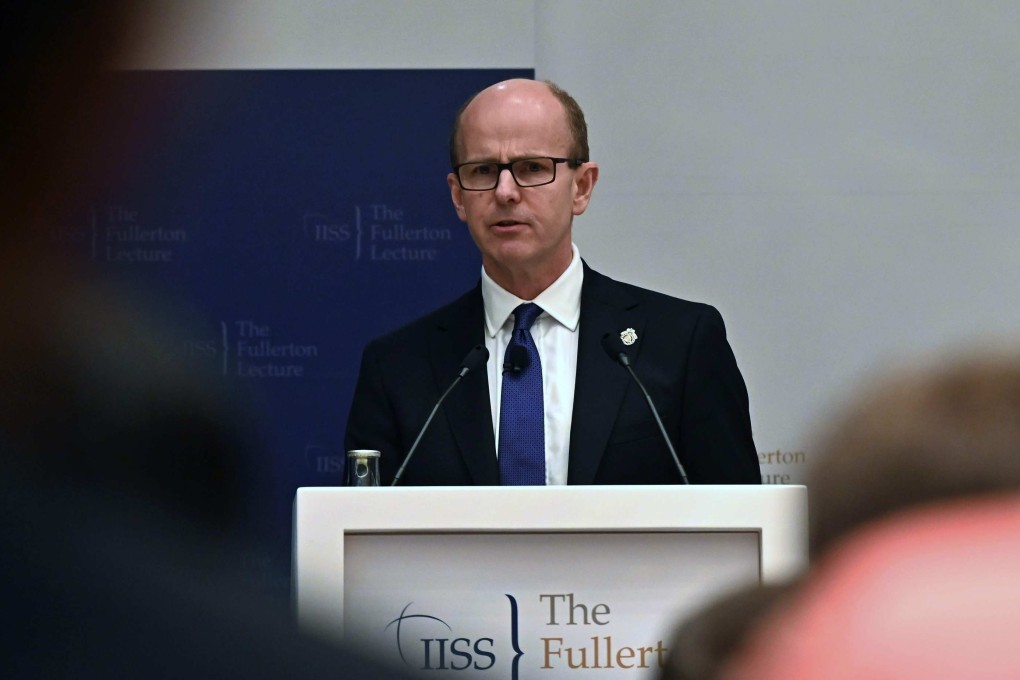China seeks ‘strategic advantage’ through technology: British intelligence official
- Beijing’s efforts to shape global tech ecosystems ‘increasingly urgent problem’, says head of UK’s Government Communications Headquarters
- China’s foreign ministry calls UK claims ‘totally groundless’

In a speech on Tuesday, Jeremy Fleming, director of Britain’s Government Communications Headquarters (GCHQ), said the Communist Party’s efforts to shape and exert control through technology was changing the definition of national security, making it a “battleground for control, values and influence”.
“We and our like-minded allies see technology as a way to enable greater freedoms, greater prosperity, greater global collaboration. And yes, fair competition,” Fleming said at an annual security lecture hosted by the Royal United Services Institute, a British think tank.
“But the Chinese leadership’s approach is to also see it as a tool to gain advantage through control: of their markets, of those in their sphere of influence and of their own citizens. In an increasingly complex and interconnected world, we see this as a major risk to our future security and prosperity.”
GCHQ oversees Britain’s cybersecurity and counterterrorism efforts as part of its intelligence mission. It is the equivalent of the US’ National Security Agency.
